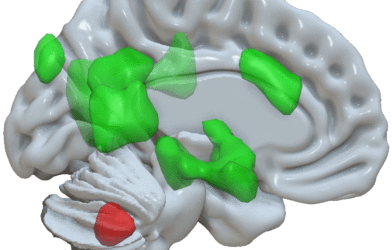Racism is a scourge on society. Despite advancements in civil rights, racial discrimination is a major cause of societal, housing and economic inequality. Now, a new study reveals racial discrimination affects the brain’s microstructure and increases the risk for health disorders.
“Here we see a pathway through which racist experiences may increase risk for health problems via effects on select stress-sensitive brain pathways,” says Dr. Negar Fani, from Emory University’s Department of Psychiatry and Behavioral Sciences, in a statement.
Emory University researchers recruited 79 Black women from a county hospital in Atlanta for the study. The participants were medically assessed for trauma and for medical disorders ranging from asthma to diabetes to chronic pain. More than 50% of the women reported severe economic disadvantage, with a household income under $1,000 per month.
The women also underwent an MRI brain scan so researchers could measure the brain’s fractional anisotropy, which is a reflection of water movement through brain white matter, specifically the long, fatty tracts that connect distant regions of the brain. Researchers say changes in the brain’s fractional anisotropy can result from structural disruptions of white matter tracts.
The study notes that Black women who experienced more racial discrimination displayed lower fractional anisotropy in select brain tracts. “In addition, the structural integrity of these two specific traits mediated the relationship between racial discrimination and medical disorders in these women,” researchers say.
Researchers believe the weight of trauma and racial discrimination may affect brain matter integrity through the stress system. The brain tracts which are affected regulate emotional and cognitive processes, which could lead to behavioral changes.
“That points to a possible brain mechanism for adverse health outcomes,” explains Dr. Fani.
Dr. Cameron Carter, editor of Biological Psychiatry: Cognitive Neuroscience and Neuroimaging, the journal where the study is published, says this study is crucial in understanding health disparities among Black people.
“These findings provide important new evidence that changes in the brain measured using MRI may occur, in association with a range of ongoing chronic health problems, in the wake of ongoing experiences of racial discrimination in African-American women,” says Dr. Carter. “Such insights may contribute to our understanding of the origins of health disparities in minorities communities and the negative impact that racial discrimination may have on human health.”












